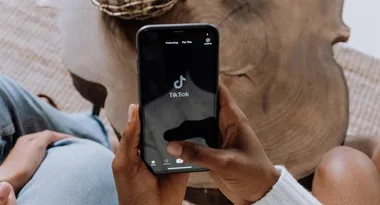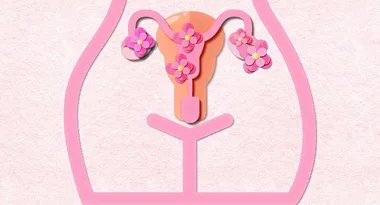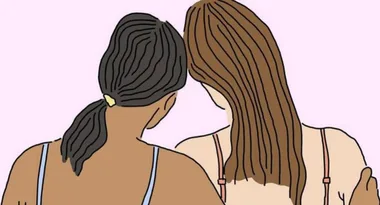When does poking fun cross over into bullying territory? DOLLY investigates.
WATCH: Flex Mami discusses what bullying means in 2021.
First, a story that may feel all too familiar to some:
Jamie, 15, constantly gets digs about her accent. “I was born in Canada and moved to Australia when I was eight,” says Jamie. “I say some words a little bit differently and there’s a bunch of girls at school who’ll ask me all the time to say certain words just so they can laugh at me. They’ll be like, ‘Say it again, Jamie. Please!’ I go along with it because it’s less drama than storming off, but I get really upset about it. I just hate walking past them.”
Having a laugh at her own expense is Jamie’s coping mechanism because, well, getting cut up just isn’t cool.
Everyone knows the only thing worse than pretend-laughing is being told, “Oh, lighten up.” Or is there?
You see, lots of girls think the easiest way to deal is to run with the joke, even if they feel like crying on the inside.
But living with ridicule is not OK. If you’re the butt of those un-funny jokes, it’s time for things to change. And that goes for the people who love an “I’m joking” disclaimer too, even if you don’t realise you’re making someone feel as upset as Jamie.
Read on – ’cos jokes that turn into bullying are no laughing matter.

Taking it too far
“I was at a party one night and I kissed one of my good guy friends, Dylan,” says Rebecca, 15.
“On Monday at school, all the girls were giving me grief about it. They were saying things like, ‘Dylan’s a babe’, then laughing because they reckon he’s not the hottest guy ever. Even weeks later, I’d walk past certain people in the playground and they’d be like, ‘Dylan’ under their breaths. I’d just sort of smile and keep walking but I was dying on the inside. It was really mean.”
According to clinical psychologist Emma Webster from Act Mindfully, it’s normal for friends to joke around and take digs at one another.
“Friends playfully and affectionately tease each other all the time. If someone does something goofy or has a quirk, their friends will usually rub them about it,” says Emma.
“Bullying, on the other hand, involves cruel comments, humiliation and put-downs disguised as jokes. Someone is made to feel small and as a result they get upset. This is where the joking behaviour stops.”
So how can you tell if a joke is a joke or a taunt disguised as a joke?
“If it’s one-sided or if there’s a power difference, it’s likely to be bullying behaviour,” says Emma.
For example, if Rebecca’s best friend was to have a quiet joke with her on the side about kissing Dylan and Rebecca could joke back, it wouldn’t necessarily be deemed as bullying.
However, if her best friend was to joke about how “hot” Dylan was in front of a big group, there’s instantly a power imbalance and Rebecca is likely to be upset. If the group is collectively laughing at Rebecca, this can be classed as bullying.

What does it feel like?
For 30 seconds, imagine YOU are that person who’s being laughed at by your group.
Imagine they’re laughing about something you’re really insecure about – it could be your braces, a mistake you made in front of the class or something that happened on the weekend.
Think of three words to describe how this would make you feel.
Now, recall how Emma describes the way these victims feel. Do your words match?
“You can be left feeling embarrassed, humiliated, ashamed, unsure of yourself and fearful it might happen again,” says Emma. “Bullying begins when the bully (who might even be a friend) has the intent of making you feel this way: that is, singling you out and embarrassing you without consent.”
Did you realise bullies try and make you feel all those things on purpose? Ouch!

When it’s happening to you
It’s not OK. You don’t have to come across as a goodie-goodie in order to make it stop, either.
“Try to be assertive with your friends if the jokes are hurting you,” says Emma. “Be clear and direct and deliver in a friendly, low-key way. You don’t have to be forceful or confrontational. Try something like, ‘Hey guys, you go a little far when you poke fun at me. Once in a while is fine but it hurts my feelings a bit, so can you not do it all the time?’”
They might get a bit of a shock at first and they might even whisper amongst each other about you standing up for yourself.
But it’s completely worth enduring the whispering sesh if it means they won’t bother you again.
If they do, Emma says it’s important to be consistent in restating your message.
“Say something like, ‘Woah guys, you’re doing it again! Take it easy.’ If it happens a third time, be firm. ‘No seriously, turn it down,’ or ‘I know where you’re coming from but I think you’re taking it too far,’” says Emma.
Remember, standing up for yourself often gains friends’ respect and might reinforce to them that they’ve made you feel hurt.

When it’s happening to a friend
“The most helpful thing you can do is try to talk to your friend who is being teased,” says Emma.
“Knowing that someone else is supportive and willing to listen can make a big difference. Talk to your friends by saying, ‘Hey guys, I know you’re probably just joking but I think when you tease Rebecca about kissing Dylan, it hurts her feelings. How would you guys feel if it was you?’”
Once you’ve spoken to your group, spend a little time with the friend who’s being bullied. Emma suggests counteracting what the bully does to boost your friend’s confidence.
“If a bully makes fun of your friend’s clothes, compliment her on her shoes. Or if your friend is being picked on because of her race or religion, ask her to tell you a story about her customs,” says Emma.

Playing the joker card
Some people intentionally know what they’re doing when they say mean stuff to someone else.
They recognise that they hold power over the other person and use it to their advantage.
For others, it’s a mere case of, ‘I actually didn’t realise I was hurting her when I joked about that.’
So in this case, how do you spot when you’re upsetting someone?
If it’s a friend, you’ll probably realise a difference in her laugh, a certain awkwardness where you can tell she’s laughing to deflect and fit in, rather than actually finding the joke funny.”
Be mindful of how a joke or dig might make the other person feel,” says Emma. “Practice perspective-taking. How would you feel if you were the victim? Don’t put someone else through hurt.”
Once you’ve got this sorted, joke away – only difference is, this time, you’ll be laughing WITH your friend.
Have a question for Dolly Doctor? Drop us an email – dollydoctor@aremedia.com.au









